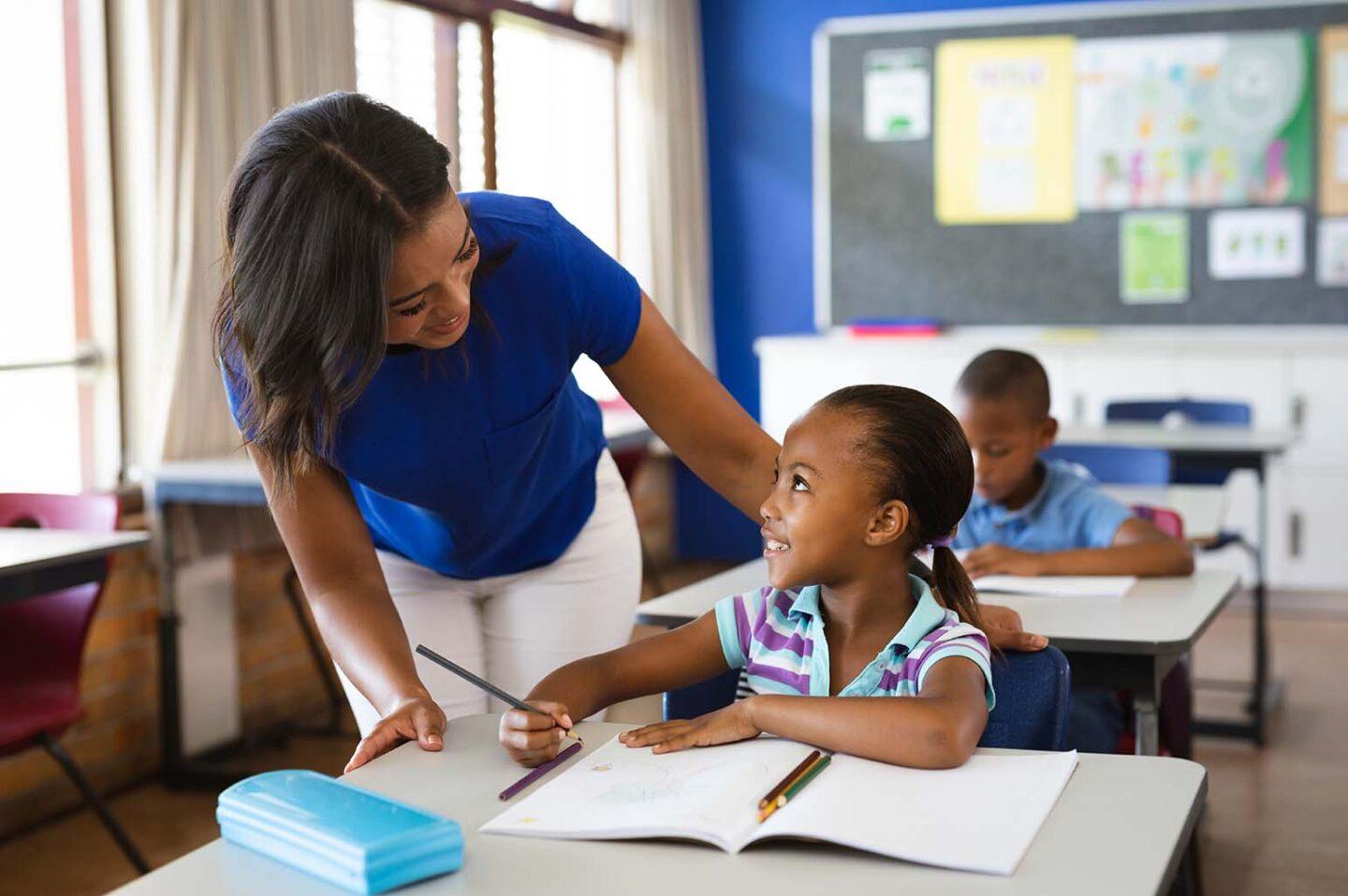Considering a career in teaching? Find out how to navigate the challenges and rewards of teaching different age groups.

Teaching is one of the most rewarding careers you can walk down, but there’s plenty you need to know before getting stuck into your new job. We always recommend considering your interests, skills, and experience before deciding on a subject and age group to teach, because you might find yourself best suited to something completely different than what you originally had in mind. Keep reading to find out everything you need to know before going into teaching!
Teaching primary or secondary classes
The Australian school system is broken down into three education levels: primary, which is 4 to 11 years, secondary, which is 12 to 16 years, and senior secondary, which is 16 to 18 years.
Primary teaching
Children usually enter the school system at age 4 when they start kindergarten. When teaching primary, you might teach children as young as this or up to the age of 11, and you’ll cover a broad range of topics such as English, maths, and science. The curriculum will also include things like art and design, PE, history, and more to offer a well-rounded education, and you’ll be expected to teach most of these classes on your own.
When studying to become a primary school teacher, you’ll need to complete a four-year teaching degree, such as a Bachelor of Education. Alternatively, if you already have an undergraduate degree that is unrelated to teaching, you’ll need to complete a Master of Teaching in primary education.
Secondary teaching
It’s not until secondary school that teachers are expected to teach their specialty subjects only. Instead of teaching one class a range of subjects throughout the day, you’ll teach lots of classes the same subject each day. This is because the students will be working towards their exams and will need a more in-depth approach to learning, so this is a good teaching route if you’d prefer to only focus on one subject during your career.
To become a secondary school teacher in Australia, you’ll need to complete a bachelor’s degree in education relating to secondary age. However, if you have a tertiary education and a major or minor in at least two curriculum areas recognized by Australian schools, you can complete a two-year Master of Teaching in Secondary Education qualification.
Teaching further education
You might prefer to teach older students over the age of 16, which would put you in the further education teaching category. You’ll often need a tertiary degree relating to the subject you want to teach, as well as the relevant teaching qualifications your territory requires. There are three main areas for teaching in further education:
- Vocational courses, such as plumbing and healthcare
- Basic skill courses, such as reading and numeracy
- Academic courses, such as English and maths
Teaching nursery or pre-school
Nursery and pre-school teachers are just as important, if not more so, than primary and secondary teachers. They are pivotal in a child’s development under the age of five, and the level of education they give to children will set them up for the rest of their academic lives.
You will need a number of teaching qualifications to be recognised as an early childhood teacher, including a primary or secondary teaching qualification, teacher registration, and an ACECQA-approved certificate at III level or higher. You’ll also need a care qualification for ACECQA’s list of approved qualifications, so there are quite a few hoops to jump through before being able to teach younger children!
Teaching children with disabilities
Most schools cater to children with special needs and disabilities (SEND), and you can train to become a teacher for these students. You’ll need an undergraduate degree that preferably majors in special needs before applying for your teacher qualifications. You’ll also need to undergo a Working With Children check and a police check, and we recommend that you get trained in first aid while you’re waiting for the paperwork to go through. You might also need a Masters of Teaching, although some schools let you go straight into work provided you have the other qualifications necessary.
In conclusion
Teaching is an incredibly rewarding job, but to get the most out of your career, you’ll need to choose the best age group for you. Primary teaching requires you to know a little about every subject, while secondary education requires you to know a lot about just one or two subjects. You can also go into further education teaching or early years education, and many schools also need teachers for children with SEND, so there’s plenty to choose from when planning your teacher career!